Best movies & TV Shows like Amakarashan
A unique, carefully handpicked, selection of the best movies like Amakarashan Starring Kanako Higuchi, Yoshinori Okada, Yasumasa Oba, Ryoko Yuui, and more. If you liked Amakarashan then you may also like: Aoi: Tokugawa Three Generations, Hojo Tokimune, Amachan, Back of Father, Teppan and many more popular movies featured on this list. You can further filter the list even more or get a random selection from the list of similar movies, to make your selection even easier.
The 57th NHK Asadora Renzoku Drama. Story's settings include Kobe and Sasayama. It is a story about the conflicts between generations and the relationships within families. A strong mother-daughter theme and a sister-brother theme exist.
You may filter the list of movies on this page for a more refined, personalized selection of movies.
Still not sure what to watch click the recommend buttun below to get a movie recommendation selected from all the movies on this list
Hojo Tokimune
The 40th NHK Taiga Drama is Hojo Tokimune. It tells the dramatic and turbulent life of young shikken Hojo Tokimune, and his successful defense of Japan from invasion by Mongolia in the 1200's. It is a tragic story of betrayal and clan wars and Hojo Tokimune is at the center of it all. The main focus of the story is Hojo Tokiyori's older sons, their relationship, and their views and actions concerning Kublai Khan's attempted invasion. The two brothers, Tokimune and Tokisuke, are torn apart by politics.
Amachan
Amachan is the 88th 2013 NHK asadora written by Kankuro Kudo (Tiger and Dragon, Unobore Deka). It's about Amano Aki (Nounen Rena), a 16 year old girl from Tokyo who goes to her mother's former home in Sodegahama, a fishing village in Kitasanriku, Iwate prefecture for the summer break. She falls in love with the sea and its people, and decides to stay on to become an Ama (women divers who fetch clams and sea urchins for tourists) just like her grandmother, Natsu (Miyamoto Nobuko). Her decision is welcomed wholeheartedly by Natsu and the other locals. However, her mother Haruko (Koizumi Kyoko) does not like the idea at first. She has a strained relationship with Natsu, and her extreme dislike of the sea, diving and the countryside is one of the reasons why she left her hometown 24 years ago. Eventually, she decides to stay in Sodegahama with Aki, considering that she is contemplating on getting a divorce anyway and does not want to go back to her husband in Tokyo. She also notices that it might be good for Aki for she seems livelier and happier in Kitasanriku than in Tokyo. The road towards becoming a full-fledged Ama-san is tough for Aki as she encounters tests and hurdles. One day, a video of her as an Ama gets uploaded in the city's tourism website, transforming an ordinary high school girl into an overnight Internet sensation. Suddenly she is called upon to use this opportunity to attract tourists to a city suffering from depopulation.
Back of Father
A 10-part omnibus drama by 10 different scriptwriters on the theme of fathers and their sons and daughters.
Teppan
Teppan is a Japanese television drama that aired on NHK in 2010–2011. It was the 83rd Asadora. It starred a new actress, Miori Takimoto, in the role of a young woman raised by an adopted family in Onomichi who learns of her real grandmother and decides to move to Osaka to start an okonomiyaki restaurant. The title word "teppan" refers to the metal surface on which okonomiyaki are cooked. The series, while interrupted by the Tohoku Earthquake, averaged a 17.2% rating, making it the fourth most popular of the Asadora dramas in the previous five years.
Umechan Sensei
Umechan Sensei is a Japanese television drama series. It debuted on April 2, 2012. It is about a girl named Umeko Shimomura who, despite being overshadowed by her talented older brother and sister, and despite being thought of as a clumsy child, decides to follow in her father's footsteps and become a doctor. It is the 86th NHK Asadora.
Mare
Mare is an elementary school student. She lives with her family in the city, but, right before her father goes bankrupt, they run away and settle down at a fishing village in Noto. The family rents a couple's home who run a salt pond. Mare's father starts a new business, but it also fails. Her mother supports the family by working at the salt pond. 8 years later, Mare, about to graduate from high school, decides to work for the Wajima local government. She wants to have a steady job, unlike her father. Her job is to support people who move to Noto.
Agri
The 56th NHK Asadora Renzoku Drama is Agri. Story's settings include Okayama and Tokyo (Ichigaya). This renzoku chronicles the life of a Showa period hairdresser, and is based on a true life story of Moshizuki Agri. Agri has worked for over 70 years as a beautician. She is a successful business woman who survived the war by becoming a farmer. During the war, going to the beauty salon was considered a frivolity, so many such businesses went bankrupt as Japan suffered from the energy spent as all the yen was fueled into the war effort.
Chiritotechin
The 77th NHK Asadora is Chiritotechin. Location includes Fukui prefecture. This renzoku is about Wada Kiyomi (referred to as Kiyomi-B), a girl brought up in Fukui who moves to Osaka in search of her soul. In Osaka, Kiyomi-B becomes enchanted with rakugo, a Japanese traditional form of comic storytelling, and pursues a career in rakugo. In the summer of 1982, Kiyomi-B and her family move to Obama of Fukui, her father's hometown. Kiyomi-B's grandmother and uncle welcome the family, but Shotaro the grandfather does not allow Masanori to take over the Wakasa lacquer chopsticks making. One day, Kiyomi-B listens to rakugo at Shotaro's factory and becomes fond of it. Shotaro and Kiyomi-B become close through rakugo.
Beppin-san
The 95th NHK Asadora is about Sumire, a girl born in the uptown of Kobe in the early Showa period. In the wake of wartime devastation, she works hard toward making children's clothes for a living, and later establishes a first-ever children's goods store in Japan. -- NHK
Teruteru Kazoku
The 69th NHK Asadora Drama, based on Rei Nakanishi's novel, is about the Iwata family living in Ikeda, Osaka City between 1950s and 1960s. The story is told through the eyes of the youngest daughter, Fuyuko. The family runs a bakery. The mother, Teruko, is a very energetic woman who is determined to make her dreams come true. Responding to Teruko's expectations, the eldest daughter becomes a figure skater and the second daughter becomes a very famous professional singer. In contrast, Fuyuko finds her joy in bread making.
Jun to Ai
Jun to Ai is a Japanese television drama series. It debuted on October 1, 2012 and was broadcast until March 30, 2013. It is about a girl named Jun Kanō, raised in Miyakojima, Okinawa, who moves to Osaka to work in a hotel. There she meets a man named Itoshi Machida, with whom she falls in love. It is the 87th NHK Asadora.
Residential Complex
Story depicts the conflicts and growth of families who live at co-operative houses. Nana Igarashi is 35-years-old and works as a diving instructor. She is married to Daiki who is 32-years-old and works at a toy company. They live in a small apartment, while saving up to buy a house. They enjoy their life. Nana and Daiki decide to buy a co-operative house. They also try to have a baby. Nana and Daiki realize it isn't easy to have baby.
Genroku Ryoran
The 38th NHK Taiga Drama is Genroku Ryoran. The "Forty-seven Loyal Samurai" is one of the most enduring and best loved stories of Japan's history. Generations have grown up hearing the stirring tale of Oishi Kuranosuke, chief councillor of the Ako clan who leads his men through suffering and hardship to ultimately avenge their lord after he is unjustly forced to commit harakiri. NHK's 38th Taiga Drama "Genroku Ryoran" is the ambitious remake of this classic epic and boasts a cast that reads like a Who's Who in Japanese entertainment.
Half Blue Sky
Suzume is a girl born to a family running a small restaurant in Gifu Prefecture. She loses her hearing in one ear from a disease. Encouraged by her loving parents and childhood friend, she lives through an eventful life with a tenacious spirit.
Masamune Shogun
Broadcast TV drama NHK broadcast on January 4 to December 13, 1987 (Showa 62). In the questionnaire survey conducted by NHK, it is shining in the most favorite river drama. The original is Yamaka Sosaichi's novel "Date Masamune", the biggest drama on the theme of the Date house was the first time in 17 years since the "Shinnogi remained" (1970), which painted Datejo in the Edo period. It depicts the life of Matsudo Date of Sengoku warrior · Date Masamune who built the foundation of Sendai clan 620,000 stones in his generation as a result of my own wisdom and talent.
Wakko no kin medaru
The 43th NHK Asadora about a female volleyball player who helps out the local community. Starring Azusa Watanabe.
Ten urara
This drama is the tale of one high spirited, strong-willed young woman and her struggle to fulfill her lifelong ambition of becoming a carpenter and building homes. The story takes place from the later part of the Showa era to present day Heisei rule. The heroine of the story, Kawashima Urara, lost her father at the tender age of seven and this drama depicts her life as she grows from a young school girl, through puberty and adolescence and on into her adult years as an independent woman who owns her own carpentry business. As Urara grows into a beautiful and strong woman and a talented carpenter, her family around her goes through many difficult and trying times. This story of becoming an independent businesswoman in the male-dominated world of carpentry accurately reflects the lives and struggles of the young women in present day Japan who are trying to make a career for themselves in addition to balancing the demands of family obligations, friends, and lovers.
Fight
Fight is a story about fifteen year old Yuu, whose family becomes separated after an incident involving her father's spring factory. With her undying spirit to "fight" off every obstacle arising in life, Yuu maintains her positive attitude and moves forward in hopes of the day when her family will reunite again.
Wakaba
The story is about a young woman who becomes a landscape gardener following her father's wishes. Wakaba, born and brought up in Kobe, Hyogo Prefecture, lived happily with her parents and younger brother until the Great Hanshin Earthquake shook and destroyed the city in 1995. In the disaster, Wakaba loses her father, who was an architect and moves with her mother and brother to Obi, old castle town in Nichinan, Miyazaki Prefecture, where her grandmother lives with her uncle and aunt. Living in Obi's rich natural environment, Wakaba learns that plants can heal people's hearts. She makes a resolution to return to Kobe and reconstruct the city abundant in greenery.
Asuka
The 61st NHK Asadora Drama is Asuka. Set in Kyoto in the home of a traditional Japanese candy-maker, Asuka is the story of one young girl's dream to one day walk in her father's shoes and become a top candy-maker in the male-dominated world of wagashi (Japanese confectionery). Asuka grows to be a healthy, adventurous young girl with a deep curiosity and, a desire to become a candy-maker like her father. This NHK drama is one of the best in years with an excellent cast, a well-developed story based on extensive research into the traditional worlds of candy making and the tea ceremony in Kyoto, and beautiful scenery and settings in Kyoto and the surrounding areas.
Kita no kazoku
The 13th NHK Asadora. Starring Youko Takahashi in a story about a brother and sister coming of age in Hakodate and Kanazawa.
Watashi wa umi
The 22nd NHK Asadora. Starring Tomoko Aihara. About a woman raising war orphans.
Ashita Koso
The 8th NHK Asadora. Starring Yumiko Fujita in a family drama. The first Asadora filmed in color.
Nobuko to Obachan
The 9th NHK Asadora. Starring Naoko Otani as a young woman living with her grandmother.
Imo Tako Nankin
The series takes place in 1962 Osaka. Hanaoka Machiko, 37, is single and works at a hardware store in Osaka City while doing literary work. One day, she falls ill due to overwork and falls in love with Tokunaga Kenjiro, the doctor who examines her. Kenjiro and Machiko marry. But Kenjiro, who lost his first wife to illness, lives not just with his five children, but his brother, sister, and parents. In a comical and heart-warming way, the drama depicts Machiko's struggle with the new family while pursuing her career as a novelist.
Ayu no uta
The 24th NHK Asadora. Starring Senri Yamazaki as a woman who makes her life at a fishing port.
Niji wo Oru
The 26th NHK Asadora. Shimazaki Kayo is a woman from Hagi, Yamaguchi, who joins the Takarazuka Revue, a Japanese all-female musical theater troupe based in Takarazuka, Hyougo Prefecture, Japan. Women play all roles in lavish, Broadway-style productions of Western-style musicals, and sometimes stories adapted from shoujo manga and Japanese folktales.
Karin
A young woman Chiaki whose family runs an old miso company in Nagano Prefecture, the only daughter of old traditional family. For generations, they were making soybean paste for living. Now she needs to take over this business and rebuild it. She lives through the hardships of postwar Japan.
Taro no Tō
A life story of Taro Okamoto, one of the most prominent Japanese avant-garde artists of the 20th Century. Celebrating the 100th anniversary of his birth in 2011, the drama depicts his struggle for the completion of his emblematic work "The Tower of Taro," known as the symbol of the Osaka Expo in 1970, and his eccentric relationships with his family.
Nonchan no yume
The 40th NHK Asadora starring Fujita Tomoko. It is about a woman who struggles to survive after World War II and starts a magazine.






































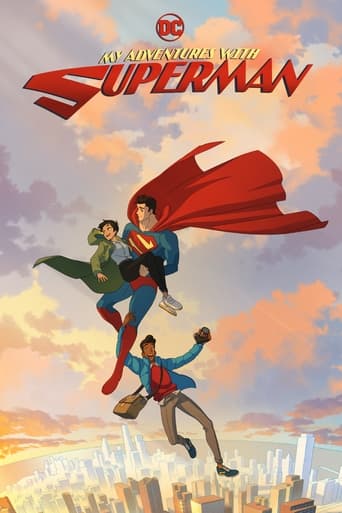

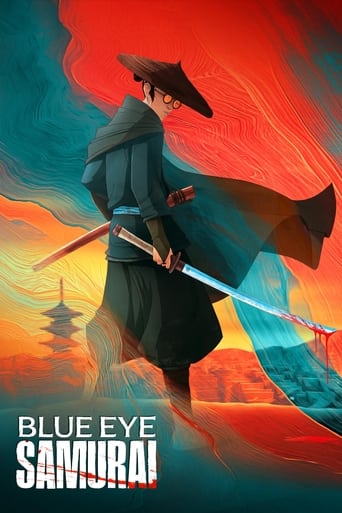
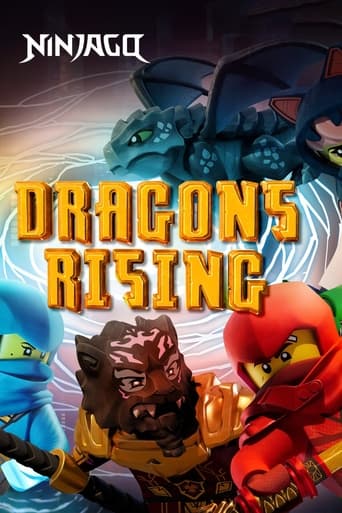
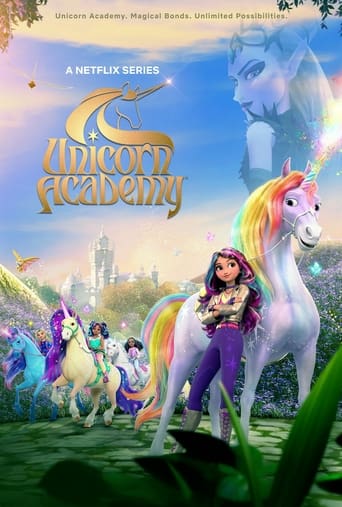
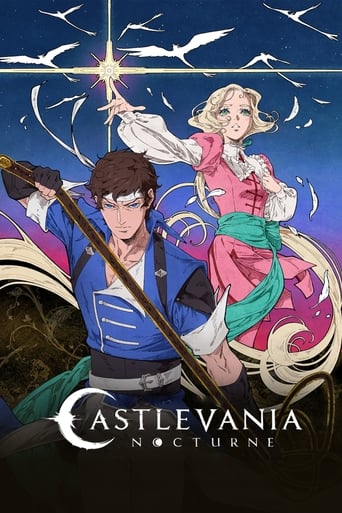



Aoi: Tokugawa Three Generations
The 39th NHK Taiga Drama is Aoi Tokugawa Sandai. It is James Miki's dynamic and colorful tale of three generations of the Tokugawa dynasty--from its founder Ieyasu to Iemitsu, the third Shogun who solidified the Tokugawa power base.